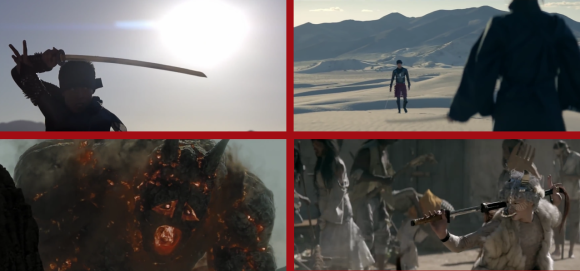
The story of Momotaro is one of Japan’s oldest folktales, but a lot of its elements seem a little silly. For starters, the hero’s name translates as “Peach Boy.” His companions are a monkey, a dog, and a pheasant, who he wins over by giving them some sweet dumplings in exchange for their help against the story’s villains, who all have outie bellybuttons.
Goofy as these details may sound, though, the core of the tale is absolutely epic. A young hero who harnesses the power of wild beasts, then sails into the heart of demon territory to rumble with them on their island fortress? In a world where every literary and comic character is a candidate to become a darkly stylish action hero (heck, even Batman’s gritty reboot is getting its own gritty reboot), why hasn’t someone revamped Peach Boy into something closer to Peach Man?
Actually, someone already has, but you won’t find the new Momotaro in theatres, and while you might catch him flipping through the channels on TV, you can’t find his adventures scheduled in the program guide. That’s because this amazingly awesome version of Momortaro is actually a series of commercials from Pepsi.
In Japan, Pepsi always has a novelty flavor, like pink strawberry, in its product planning pipeline. Not all of the company’s Japan-exclusives are so off the wall though, as the country is the only place where you can get the zero-calorie Pepsi Nex Zero.
We suppose Pepsi could have gone the traditional route for marketing low-calorie beverages, and shown a group of fashionably fit friends laughing together with a round of Pepsi Nex Zeroes after one of those oddly sweat-free workouts TV commercials are so fond of showing. Instead, though, we got this:
That’s Shun Oguri, who you might recognize from his starring role in the live-action Lupin III film, playing Momotaro. Along with the rousing fight song of British rock band The Heavy’s “Same Ol’,” the video is accompanied by the following text.
Long, long ago, a legion of oni (demons) invaded a village. They were far too powerful, and the villagers could do nothing to stand against them.
Hearing news of their plight, Momotaro enlisted the help of a dog, a monkey, and a pheasant, and set out for the Onigashima Island, the monsters’ home.
The band of heroes aren’t in for an easy fight, though, if the next episode’s flashback is anything to judge from.
This is a tale from the time before Momotaro met his animal companions, from when he challenged an oni alone.
The creature’s strength was beyond Momotaro’s imagination. Utterly defeated, he sought out a master swordsman.
The swordsman’s name was Miyamoto Musashi. Momotaro trained under him, and one day, became skilled enough to be a match for his master. On the day his training was complete, Musashi presented his disciple with a sword.
It’s not just the lead who gets a backstory dripping with pathos, though. The newest episode, which was just released this month, sheds light on the dog’s past, which makes Momotaro’s bitter backstory look warm and fuzzy by comparison.
Long ago, in the mountains where the wolves live, the animals found a human infant.
The wolves raised the boy as their own son, and lived together in happiness. However…
The oni appeared on the mountain, scattering the pack with their terrible strength. In an instant, all was lost. Only the boy was left alive, and his grief was so great that when morning came, his hair had turned white with sadness.
Wrapping himself in his only inheritance, the pelt of his dead mother, from that day forward, he would tell all he met that his name was Dog.
At 90 seconds, each episode is just long enough to whet your appetite for more of this incredible reimagining of the Japanese classic. Thankfully, since there’ve already been installments highlighting two of the four heroes, it’s safe to assume we’ll eventually see ones focusing on the remaining two, and at least one episode after they arrive on Onigashima. So we’ve got a minimum of three more episodes to look forward to, even if what we’d really like to see is these characters in a full length theatrical feature.
With all the awesomeness distracting us, though, we still haven’t addressed the question of what exactly any of this has to do with zero-calorie cola. Pepsi hasn’t come out and given an explicit explanation, but we’ve got a theory.
Because the goal of ads is to make you think you’ll be happier if you buy the product, most diet-related items are marketed by telling you how easy it is to lose weight. That’s a lie, as anyone who’s successfully shed several pounds or maintained an admirable physique can tell you. Staying in shape is hard, hard work, and the unspoken message in Pepsi’s commercials is that you’ll never get anything done running from that challenge. Meet it head on. Grapple with it. If it knocks you down, pick yourself up, wrap yourself in a wolfskin, and charge at it again.
Or, as the Japanese tagline that appears near the end of each episode says, “Defeat those stronger than you.”
Sorry, Nike. You had a good run with “Just do it,” but the world’s most badass creed now belongs to the Peach Boy.
Source: IT Media
Top image: YouTube (1, 2, 3)
Insert images: Pepsi, YouTube (1, 2, 3)

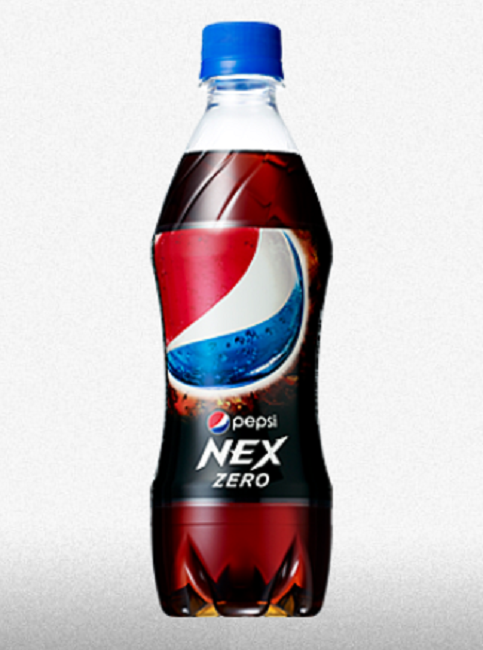

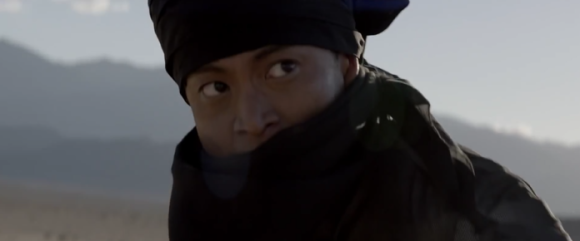
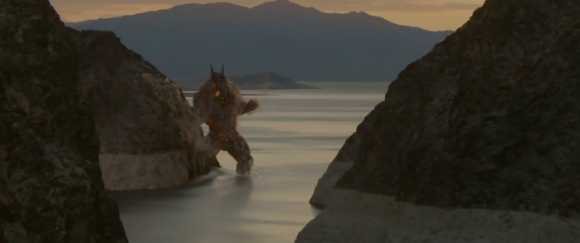
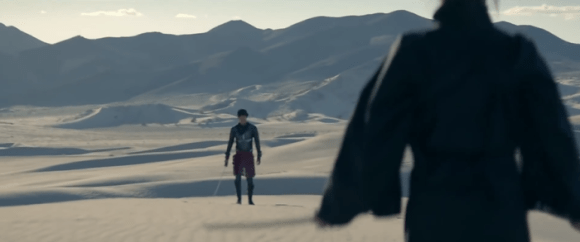
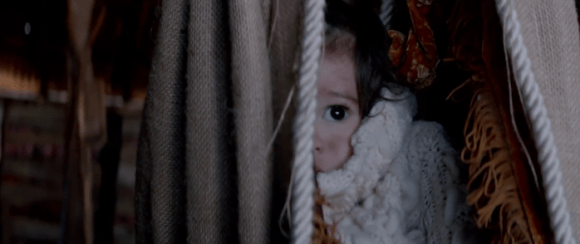

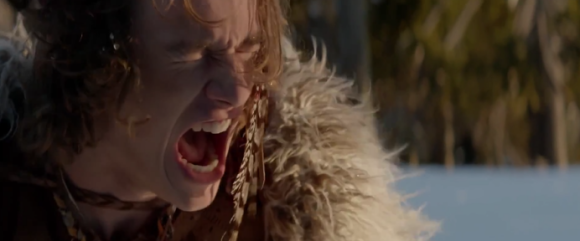
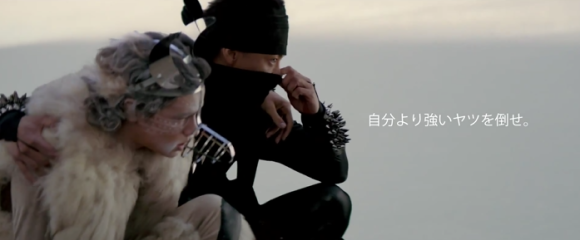
 Jude Law stars in epic Japanese Pepsi commercial as legendary demon from tale of Momotaro
Jude Law stars in epic Japanese Pepsi commercial as legendary demon from tale of Momotaro Pepsi Zero Peach is being released in one area of Japan
Pepsi Zero Peach is being released in one area of Japan The Japan-exclusive Pepsi for fried chicken is here, but is it good?【Taste test】
The Japan-exclusive Pepsi for fried chicken is here, but is it good?【Taste test】 New ad for Pepsi J-Cola is like a badass Mad Max Japanese festival 【Video】
New ad for Pepsi J-Cola is like a badass Mad Max Japanese festival 【Video】 Pepsi releases a new cola in Japan specifically for karaage fried chicken
Pepsi releases a new cola in Japan specifically for karaage fried chicken Japan Extreme Budget Travel! A trip from Tokyo to Izumo for just 30,000 yen [Part 2]
Japan Extreme Budget Travel! A trip from Tokyo to Izumo for just 30,000 yen [Part 2] Starbucks Japan releases first-ever Hinamatsuri Girls’ Day Frappuccino
Starbucks Japan releases first-ever Hinamatsuri Girls’ Day Frappuccino Japanese restaurant chain serves Dragon Ball donuts and Senzu Beans this spring
Japanese restaurant chain serves Dragon Ball donuts and Senzu Beans this spring Japan’s quail egg industry takes a severe blow after a sharp decline in use in school lunches
Japan’s quail egg industry takes a severe blow after a sharp decline in use in school lunches Is Sapporio’s Snow Festival awesome enough to be worth visiting even if you hate the snow? [Pics]
Is Sapporio’s Snow Festival awesome enough to be worth visiting even if you hate the snow? [Pics] Elephant nose ice cream: The treat with a trunk
Elephant nose ice cream: The treat with a trunk Japan has canned fried chicken, and we taste-test two types of no-cook karaage
Japan has canned fried chicken, and we taste-test two types of no-cook karaage Man arrested in rural Japan on charges of leaving obscene DVDs in stores as gifts for “healthy men”
Man arrested in rural Japan on charges of leaving obscene DVDs in stores as gifts for “healthy men” 7-Eleven Japan’s sakura sweets season is underway right now!
7-Eleven Japan’s sakura sweets season is underway right now! Tokyo street sweets: The must-snack treats of Nakano’s Refutei
Tokyo street sweets: The must-snack treats of Nakano’s Refutei The 10 most annoying things foreign tourists do on Japanese trains, according to locals
The 10 most annoying things foreign tourists do on Japanese trains, according to locals Highest Starbucks in Japan set to open this spring in the Tokyo sky
Highest Starbucks in Japan set to open this spring in the Tokyo sky Tokyo Skytree turns pink for the cherry blossom season
Tokyo Skytree turns pink for the cherry blossom season Starbucks Japan releases new sakura goods and drinkware for cherry blossom season 2026
Starbucks Japan releases new sakura goods and drinkware for cherry blossom season 2026 Japan’s new “Cunte” contact lenses aren’t pronounced like you’re probably thinking they are
Japan’s new “Cunte” contact lenses aren’t pronounced like you’re probably thinking they are Shibuya Station’s Hachiko Gate and Yamanote Line stairway locations change next month
Shibuya Station’s Hachiko Gate and Yamanote Line stairway locations change next month Yakuzen ramen restaurant in Tokyo is very different to a yakuza ramen restaurant
Yakuzen ramen restaurant in Tokyo is very different to a yakuza ramen restaurant Starbucks Japan adds new sakura Frappuccino and cherry blossom drinks to the menu
Starbucks Japan adds new sakura Frappuccino and cherry blossom drinks to the menu Japan just had its first same-month foreign tourist decrease in four years
Japan just had its first same-month foreign tourist decrease in four years Burning through cash just to throw things away tops list of headaches when moving house in Japan
Burning through cash just to throw things away tops list of headaches when moving house in Japan Japan’s newest Shinkansen has no seats…or passengers [Video]
Japan’s newest Shinkansen has no seats…or passengers [Video] Foreigners accounting for over 80 percent of off-course skiers needing rescue in Japan’s Hokkaido
Foreigners accounting for over 80 percent of off-course skiers needing rescue in Japan’s Hokkaido Super-salty pizza sends six kids to the hospital in Japan, linguistics blamed
Super-salty pizza sends six kids to the hospital in Japan, linguistics blamed Starbucks Japan unveils new sakura Frappuccino for cherry blossom season 2026
Starbucks Japan unveils new sakura Frappuccino for cherry blossom season 2026 Foreign tourists in Japan will get free Shinkansen tickets to promote regional tourism
Foreign tourists in Japan will get free Shinkansen tickets to promote regional tourism Take a trip to Japan’s Dododo Land, the most irritating place on Earth
Take a trip to Japan’s Dododo Land, the most irritating place on Earth Naruto and Converse team up for new line of shinobi sneakers[Photos]
Naruto and Converse team up for new line of shinobi sneakers[Photos] Is China’s don’t-go-to-Japan warning affecting the lines at a popular Tokyo gyukatsu restaurant?
Is China’s don’t-go-to-Japan warning affecting the lines at a popular Tokyo gyukatsu restaurant? Survey asks foreign tourists what bothered them in Japan, more than half gave same answer
Survey asks foreign tourists what bothered them in Japan, more than half gave same answer Japan’s human washing machines will go on sale to general public, demos to be held in Tokyo
Japan’s human washing machines will go on sale to general public, demos to be held in Tokyo Starbucks Japan releases new drinkware and goods for Valentine’s Day
Starbucks Japan releases new drinkware and goods for Valentine’s Day We deeply regret going into this tunnel on our walk in the mountains of Japan
We deeply regret going into this tunnel on our walk in the mountains of Japan Studio Ghibli releases Kodama forest spirits from Princess Mononoke to light up your home
Studio Ghibli releases Kodama forest spirits from Princess Mononoke to light up your home Major Japanese hotel chain says reservations via overseas booking sites may not be valid
Major Japanese hotel chain says reservations via overseas booking sites may not be valid Put sesame oil in your coffee? Japanese maker says it’s the best way to start your day【Taste test】
Put sesame oil in your coffee? Japanese maker says it’s the best way to start your day【Taste test】 No more using real katana for tourism activities, Japan’s National Police Agency says
No more using real katana for tourism activities, Japan’s National Police Agency says Power of soybeans turns Bean-Throwing Festival into sexy action flick in awesome commercial
Power of soybeans turns Bean-Throwing Festival into sexy action flick in awesome commercial Pepsi creates a new cola for Christmas fried chicken in Japan
Pepsi creates a new cola for Christmas fried chicken in Japan Mint Pepsi for Yakisoba is coming to Japan, and we got to taste it before it goes on sale
Mint Pepsi for Yakisoba is coming to Japan, and we got to taste it before it goes on sale Google made a free-to-play ninja cat RPG to celebrate the Tokyo Olympics, and it’s awesome!
Google made a free-to-play ninja cat RPG to celebrate the Tokyo Olympics, and it’s awesome! Star Wars becomes a kabuki play as we attend Kairennosuke and the Three Shining Swords in Tokyo
Star Wars becomes a kabuki play as we attend Kairennosuke and the Three Shining Swords in Tokyo